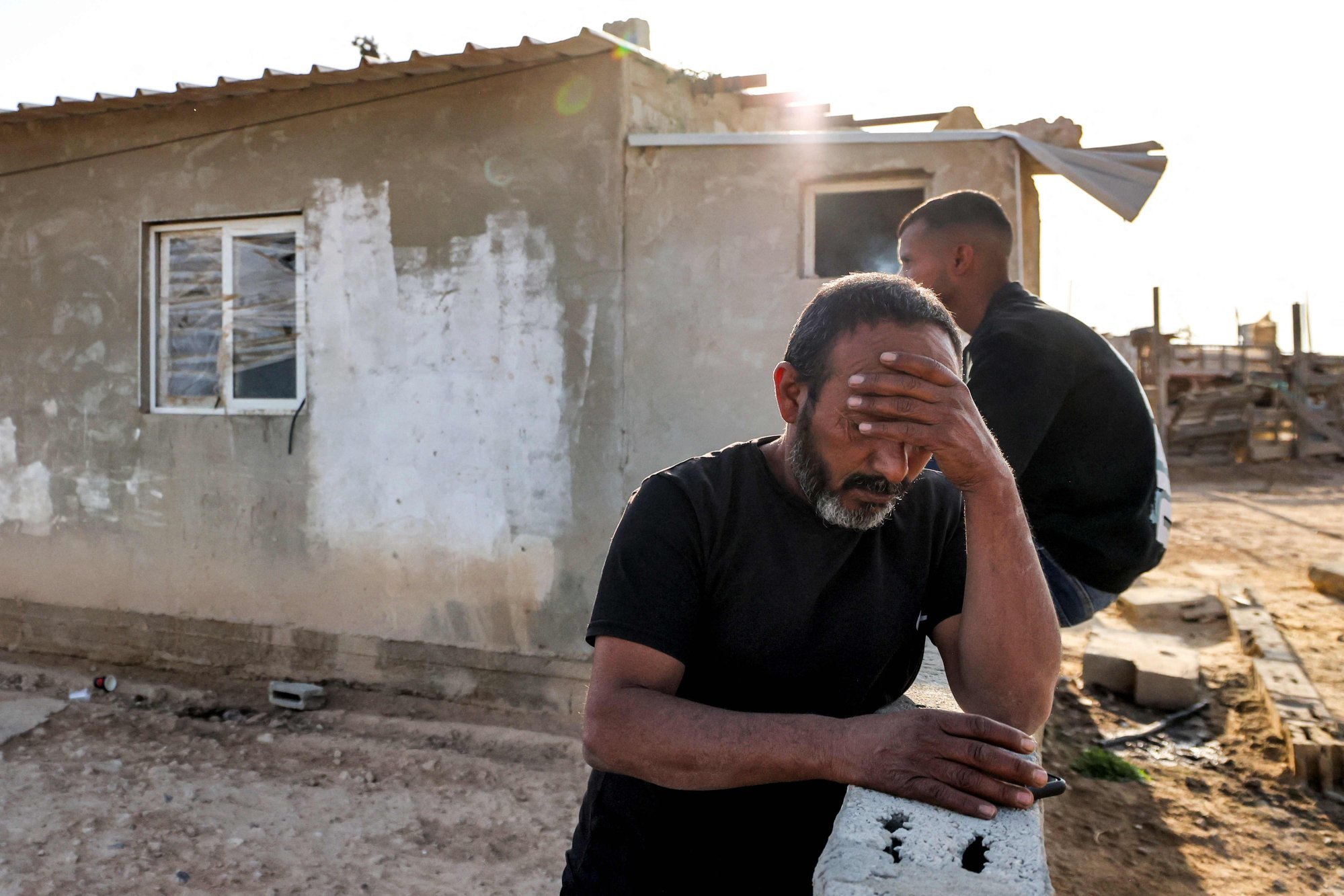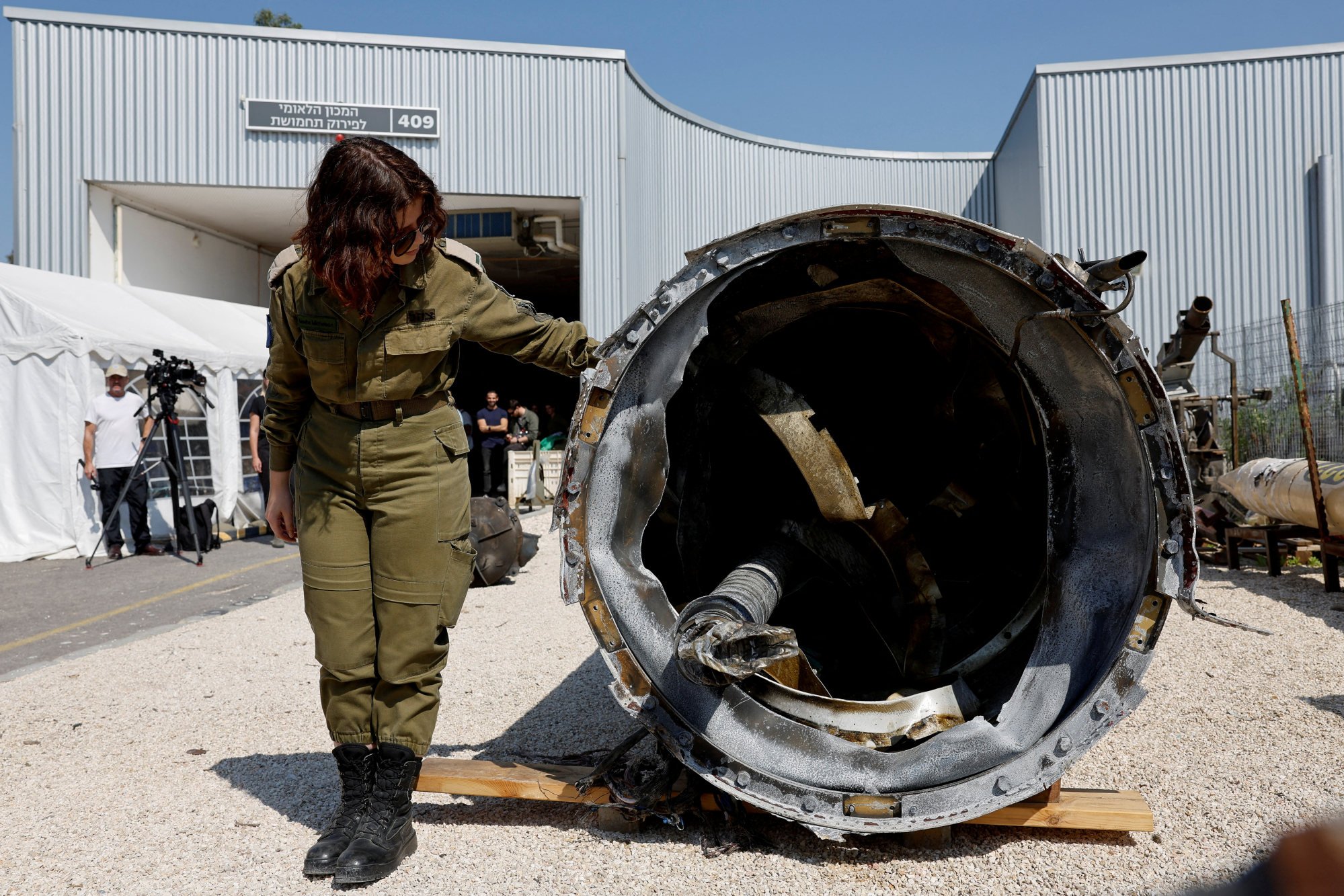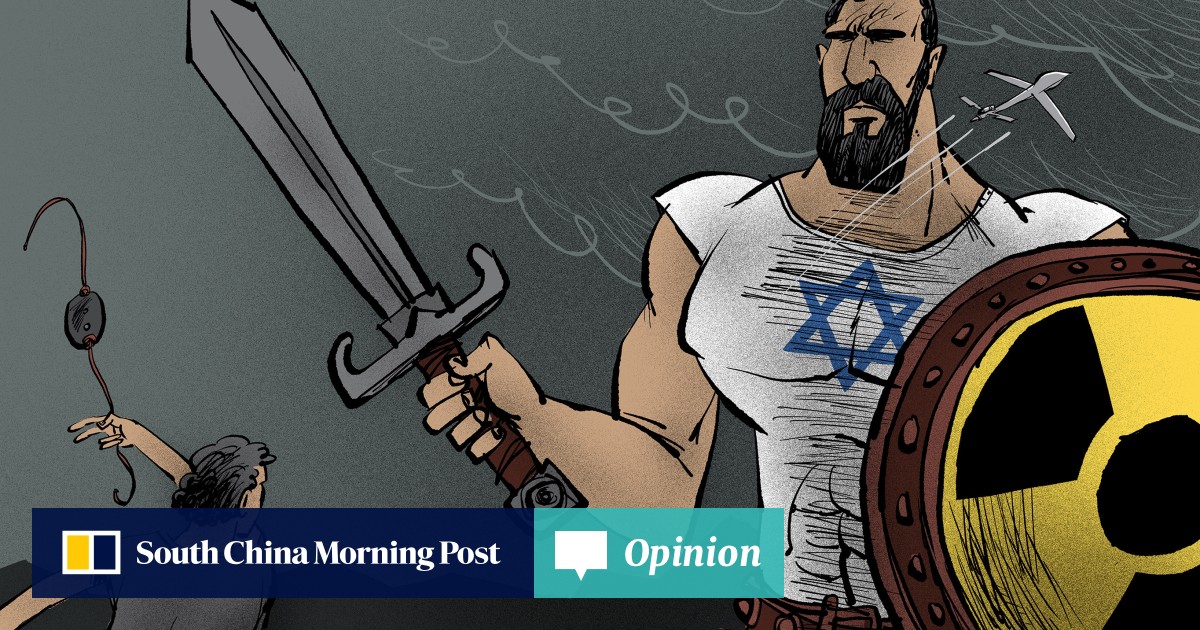Some experts say Israel became a de facto nuclear weapons power in September 1979 when it conducted a secret nuclear test but this was neither confirmed nor denied. Since then, Israel has projected an image of infallible deterrence derived from its opaque weapons of mass destruction (WMD) status and its robust conventional military capability.
The Israeli Defence Forces (IDF) have combined hi-tech equipment, intelligence-gathering, surveillance and a combat efficiency reputation aimed at deterring regional adversaries. The apocalyptic Samson option – the use of nuclear weapons – was seen as the final resort to an existential threat to Israel.

At the tactical level, while Israel and its partners said 99 per cent of the projectiles fired were intercepted, a very small number were able to get through. An Arab Bedouin girl is reported to have been wounded in the attack. Some damage was also reported at an airbase from where Israel is thought to have conducted the attack on Iran’s consulate in Damascus. The inference is that when drones are used, no air-defence system can be totally unbreachable.
There was enough time for the IDF to prepare for an attack between the Damascus consular strike and Iran’s reprisal, especially in light of reports that Tehran alerted the US of its retaliation days before. This almost slow-motion attack trajectory was a signal for the IDF and, consequently, Israel’s air defences boasted a very high success rate of intercepting the projectiles fired.
Support for the IDF by the US, UK and France must also be taken into account. Countries in the region like Jordan and Saudi Arabia also enabled the Israeli effort. Experts estimate that Iran used fairly inexpensive drones along with a smaller missile component.

Israel mounted a comprehensive air defence effort and expended far more costly military inventory. Preliminary estimates of the April 13 operations point to a relatively low-cost Iranian offensive countered by a very intense, high-expenditure air defence effort involving the assets of Israel, the US, UK and France. Such a defensive posture and response is not sustainable for Israel in the long term.
Israel is now part of that group of nations, where the possession of WMD capabilities does not provide any failproof insurance against rival non-state entities taking recourse to terrorism or against states that enable and support their activities.
Given the sociopolitical choices Israel has made in relation to Palestine, Iran and the Arab world in general, the IDF will need to define a more appropriate form of deterrence against both state and non-state challenges to ensure credible security for Israeli citizens.
Commodore C. Uday Bhaskar is director of the Society for Policy Studies (SPS), an independent think tank based in New Delhi

